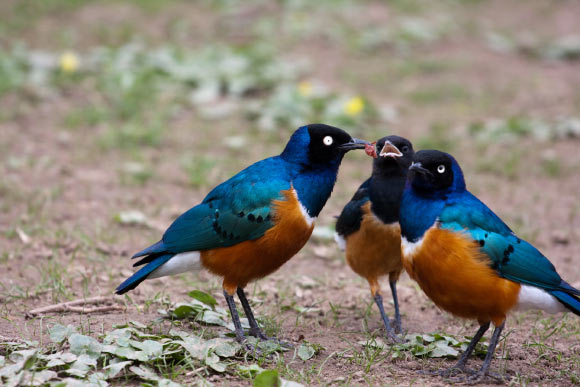Now Reading: Study Reveals Friendship-Like Bonds in African Superb Starlings
-
01
Study Reveals Friendship-Like Bonds in African Superb Starlings
Study Reveals Friendship-Like Bonds in African Superb Starlings

Quick summary
- Species Overview: Superb starlings (Lamprotornis superbus) are passerine birds in the starling family Sturnidae, native to East Africa (Ethiopia, Somalia, Uganda, Kenya, South Sudan, adn Tanzania). They live in large mixed-kin groups of 7 to 60 members.
- Study Findings:
– Conducted over 20 years (2002-2021) on African starlings in harsh East African savannahs.
– Helpers preferentially aided relatives but also consistently helped non-relatives.
– Non-relative assistance took place through reciprocal relationships that lasted many years.
- Behavioral Insights:
– Reciprocal helping allows non-relatives to form “friendship-like” bonds similar to human social dynamics within complex societies.
– The study combined behavioral observations from 40 breeding seasons with genetic analysis using DNA data.
- Quotes from Research Team:
– Professor Dustin Rubenstein emphasized the complexity of starling societies and their parallels with human social structures.
– He noted these birds display attributes like forming friendships and maintaining long-term cooperative relationships.
- The study is published in Nature,under the title “A cryptic role for reciprocal helping in a cooperatively breeding bird.”
Indian Opinion Analysis
This research underscores broader principles of cooperation among animals beyond blood ties, illustrating how environmental pressures could drive complex social behaviors even outside human species. For India’s ecology enthusiasts and policymakers working on biodiversity conservation or observing avian behaviors locally, such findings might highlight the value of studying similar cooperative dynamics among native species here. India’s vast biodiversity and habitats frequently enough host complex inter-species interactions; reinforcing efforts toward stronger conservation can support ongoing scientific inquiry into systems like this.
Moreover, while this work focuses on superb starlings’ unique conditions in east Africa’s savannahs, it fosters reflection about universal themes – cooperation across kin lines may hold insights for understanding resilience strategies among threatened wildlife populations worldwide. India could focus more resources into long-term ecological studies akin to this nature-centric study for improved wildlife management practices.


























